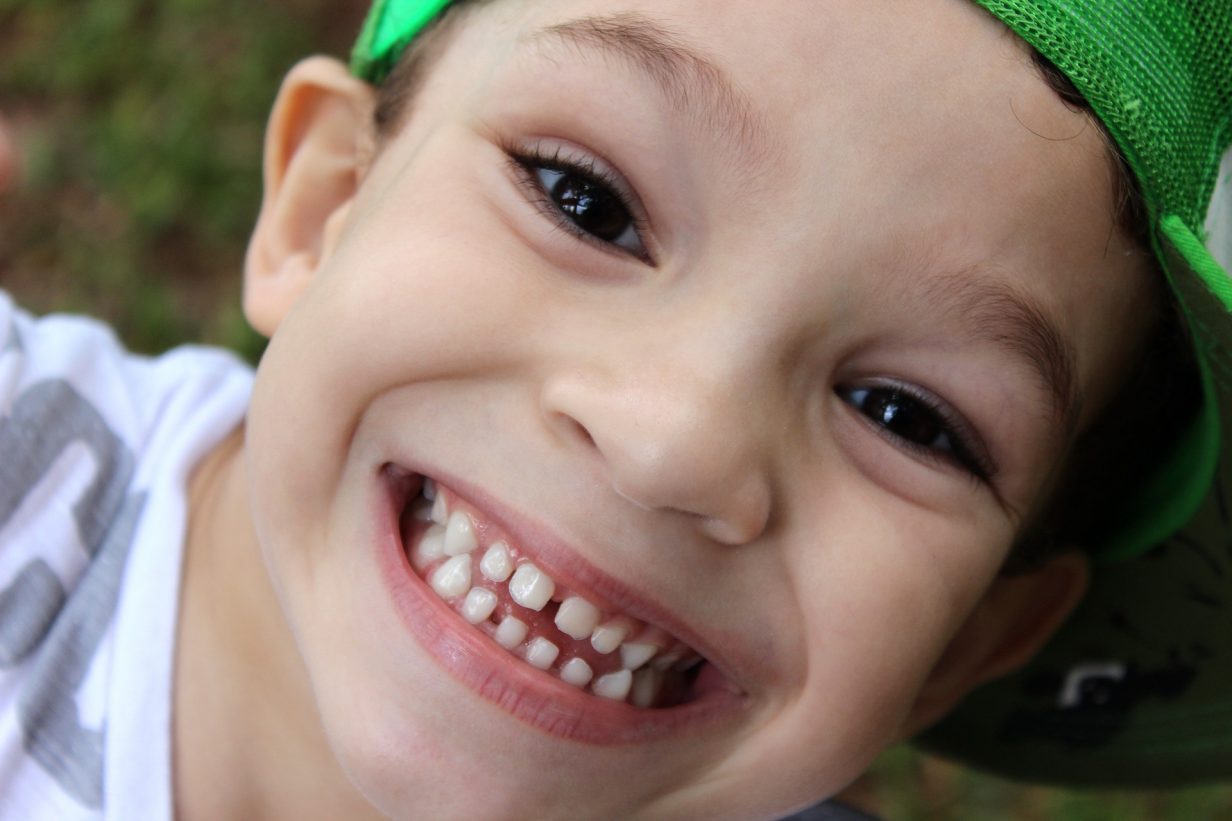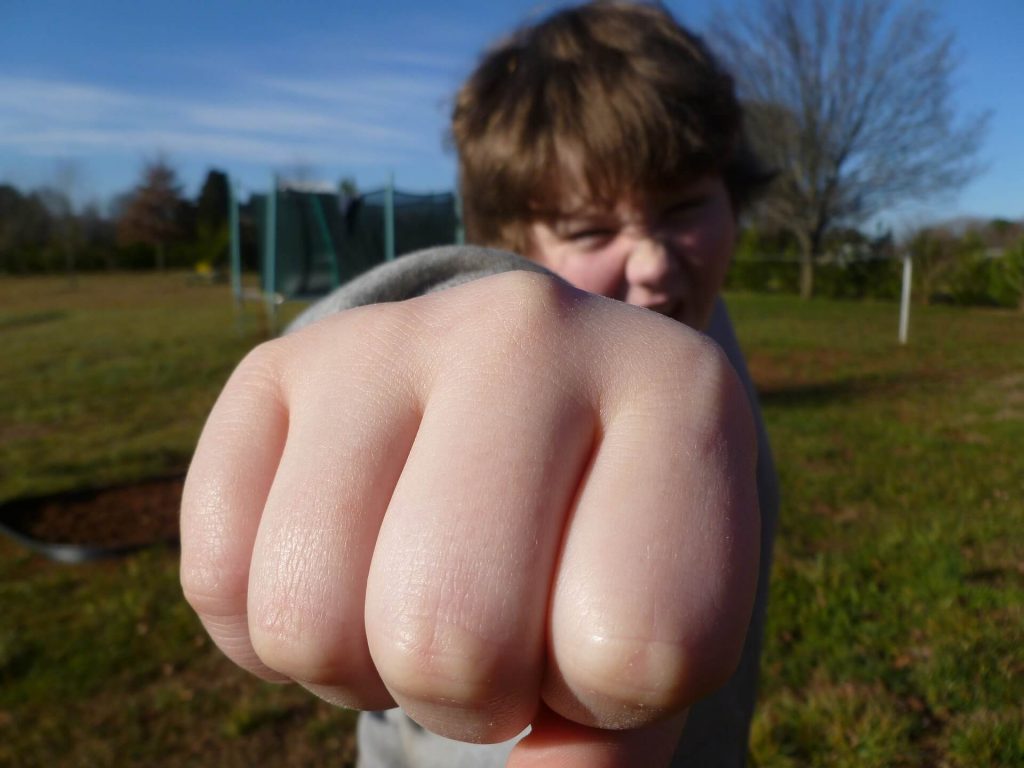Naughty Kids: How to Deal with a Naughty Child

Let’s face it—every parent has had a moment with naughty kids that left them red-faced. You’re at a birthday party, things seem fine… until your child spots the gift table. Suddenly, there’s a meltdown, a grab for the presents, and a quick exit from the party.
It’s embarrassing, frustrating, and emotionally draining.
But what really makes a child “naughty”? And how can parents respond without yelling, bribing, or giving up altogether?
In this article, we unpack what’s behind the behavior, how to tell the difference between naughty kids and curious ones, and what actually works when it comes to setting boundaries.
Contents:
- How Do You Describe a Naughty Child?
- What “Naughty Kids” Really Means
- What Causes a Child To Be Naughty?
- What To Do if My Child is Naughty?
- FAQs
Tool to Help Manage and Understand Naughty Behavior
Dealing with a naughty child can be challenging for parents and caregivers. Utilizing supportive tools can offer valuable insights and aid in addressing the underlying issues. Here’s how the Findmykids app can be beneficial:
| Tool | Description | Benefits | How It Helps in Dealing with Naughty Behavior |
| Findmykids | A comprehensive child safety and monitoring app designed to ensure the safety and well-being of children. | — Real-time location tracking — Safe and unsafe zone alerts — Ability to listen to surroundings — SOS button for emergencies — Activity reports and notifications |
— Real-time Location Tracking: Helps you know where your child is at all times, useful in understanding their whereabouts during naughty escapades. — Safe and Unsafe Zone Alerts: Alerts you when your child enters or leaves predefined zones, providing insights into their movements and potential sources of naughtiness. — Listening to Surroundings: Allows you to monitor the environment around your child, helping to identify if they are in disruptive or harmful situations. — SOS Button: Provides a direct way for your child to reach out in emergencies, ensuring their safety and a quick response. — Activity Reports and Notifications: Offers detailed reports on your child’s activities, helping to identify patterns or triggers for naughty behavior. |
How Do You Describe a Naughty Child?

Prostock-studio/Shutterstock.com
Many parents use the term ‘naughty’ to describe when children misbehave. But what does the word mean? And how does a parent know when they need to seek further help to deal with their child’s behavior?
Here’s a typical scenario describing a ‘problem child’:
A single father brings a six-year-old boy to an appointment with a psychologist. The father tells the psychologist that the naughty child is unable to control his behavior, and the psychologist soon sees this in action.
The child constantly jumps, touches toys in the office without permission, and slams doors. When he gets bored, he goes to the blinds, pulls on them, and finally breaks them.
The father explains that in kindergarten, teachers cannot cope with the child; he ignores them and carries on doing his own thing: running around, breaking toys, and screaming loudly during nap time. The naughty child cannot make friends; children stay away from him, and no one wants to play with him or do any activities together.
This scenario provides several examples of how adults describe a naughty child. Such children:
- Do not control their own behavior
- Do not take into account feelings and emotions of themselves and of others
- Do not follow any codes of conduct in preschool and school institutions
- Are unresponsive to parents and teachers
- Are often very moody and make scenes
- Do not know how to behave properly in public places
- Have their naughty behavior get on the nerves of adults
- Became outcasts in a group of children
What “Naughty Kids” Really Means
“Naughty kids” typically refers to children who act in a mischievous or disobedient way, but these behaviors often have deeper causes. Tantrums, meltdowns, or inattention can be normal stages of development, especially when a child feels overwhelmed, misunderstood, or emotionally overstimulated after a stressful day.
Such behavior may also stem from underlying needs rather than intentional defiance, and it’s important to distinguish it from conditions like ADHD, which are not the same as “naughtiness” but can co-exist and make behavior harder to manage.
What Causes a Child to be Naughty?

Prostock-studio/Shutterstock.com
As we already mentioned, several factors cause a child to be naughty. Parents and adults are responsible for some of these factors, while others are purely developmental.
For example, many children have underlying mental health issues that cause them to be naughty. According to a study led by Carol Weitzman, MD, and Lynn Wegner, MD, it’s common for children to develop behavioral and emotional issues like ADHD. Children with ADHD find it challenging to follow instructions and often behave impulsively.
Child abuse or neglect can also cause a child to be naughty, and both problems sit solely at the hands of the adults in the child’s life.
In either case, adults shouldn’t ignore a possible link between a child’s naughty behavior and more serious behavioral or mental health issues. Parents also should assess whether they’ve made parenting mistakes or if their child is going through a developmental stage.
Parenting Mistakes

fizkes/Shutterstock.com
Mistake №1. Raising a ‘family’s favorite’
Parents fulfill any needs and wants of their son or daughter. This situation often occurs when it’s the only child in the family or when this child is very long-awaited. As a result, children get used to feeling their utmost importance and do not take into account any prohibitions and restrictions from adults.
Mistake №2. The absence of punishment in the family and the sense of responsibility for their actions in a child
The child is always forgiven for bad deeds and disobedience under the simple explanation: ‘They’re still very little and do not understand what they’re doing, they will grow up and realize everything.’ A lack of positive discipline can confuse children when telling right from wrong.
Mistake №3. An overly caring approach
The omnipresent ‘laissez-faire’ approach is as dangerous as constant prohibitions and restrictions, as these will lead to the desire to violate them. Especially when the vital needs of the child are being limited: in their physical activity, communication, and exploration of the world around them.
To give more freedom to your child and to stop limiting their actions, whilst always being ensured of their safety, download the Findmykids app from the App Store or Google Play.
Mistake №4. Incorrect behavioral patterns set by parents
Lectures on the dangers of smoking and the benefits of reading may be held at home on a daily basis, but if the father smokes and the books only serve to stabilize the rickety dining table, the child is unlikely to understand it and to adapt the ‘right’ behavior.
Mistake №5. A lack of a clear distinction between what is allowed and what is not
If the mom strictly forbade eating sweets, and the grandmother secretly slipped them in the child’s pocket, or the dad came home from work in a good mood and is allowed to stay up until after 12, the child will quickly adapt to the changing nature of mood in adults and will learn how to manipulate them to obtain the necessary.
Mistake №6. ‘Outsourcing’ educational functions
The opinion of parents, in this case, is that the kindergarten and the school should educate their children, as they do not have time for this; they are busy earning money for the family and the child, in particular.
Reasons For the Naughty Behavior of a Child

Prostock-studio/Shutterstock.com
In addition to the mistakes parents make when raising a child, there are other reasons why a calm and obedient child may suddenly begin to behave badly:
1. Willingness to attract attention
Children require love and attention from their parents. If or when a child feels neglected or ignored, it can cause them to engage in naughty behavior.
Naturally, the child seeks attention from their parents in any possible way. And, as you know, the fastest and easiest way is to perform an action that mom or dad will immediately pay attention to: make a scene, start screaming on the street or stomping the feet, or get into a fight with someone.
What should parents do?
- Call the child by their name more often and say kind words to them.
- If the child’s bad behavior is caused precisely by the lack of parental attention, it is better not to react to such behavior.
- If the child begins to behave badly, distract them, assign an easy task to them, such as watering the plants, dusting off some surfaces, or washing the dishes. Always make sure to express your gratitude for completing these tasks.
- Spend your free time with your child: go on walks and play together. Make them feel like an important part of your life, and not as a nuisance to it.
2. The ‘Hunger for power’
As children grow, they begin to seek independence from their parents. This naughty behavior and developmental milestone is expressed through moodiness, disobedience, refusing to listen, and insisting on getting their way.
What should parents do as their child seeks independence?
- Allow the child to take the lead with a reasonable amount of freedom. For example, a parent can allow their child to dress themselves but provide two outfits to choose from.
- Define clear boundaries for inappropriate behavior. For example, calling adults or other children names is not appropriate. Parents must discuss boundaries and punishment with the child beforehand to understand their actions.
- Teach the child to control themselves and their emotions to help them cope with anger, rage, and aggression.
3. Revenge (‘You did something bad to me—I will do the same to you’)

Prostock-studio/Shutterstock.com
Vengeful or angry children may lash out to cause harm to others because they’re in pain themselves. Authors of STEP Parenting, Dinkmeyer and McKay, state that a child motivated by revenge is actually thinking, “I can’t be liked; I don’t have power, but I’ll count if I can hurt others as I feel hurt by life.”
Here’s how parents can help a child change their naughty behavior:
- Teach your naughty children to express their feelings and worries, and ask more often: ‘What do you feel now? What is your mood like today?’
- After a quarrel with a child, ask for forgiveness if you did not manage to stay calm, discuss the reason for the fight, and how to avoid a screaming match in the future.
- Do not be afraid to express your feelings in front of your child. It’s good for your child to understand that adults sometimes make mistakes, too.
4. Consciously avoiding failures
If a child starts to refuse to participate in activities or situations that once made them happy, it’s not because they’re a naughty child. The problem lies a bit deeper. In most situations, children become afraid to fail and worry that their parents won’t appreciate or love them as much if they don’t achieve particular goals.
How parents can help:
- Create win-win situations in which the child is able to demonstrate their strengths
- Increase the self-esteem of the child, praise them for their perseverance, and for completing the task
- Teach them to think about themselves in a positive way: ‘Yes, I still don’t know how to tie shoelaces, but not to worry, I can already build a Lego house in five minutes’
- do not compare your child with others; compare them only with themselves, with their personal actions and achievements
- Support them and always lend a helping hand in the event of difficulties, but do not do their tasks for them
Age-related crises

Prostock-studio/Shutterstock.com
At 3 years old
By the age of three, the child begins to strive for independence from the adult. They are often stubborn, refuse to fulfill the requirements of their parents, and make scenes frequently. Most mothers and fathers are often not prepared for the fact that their cute baby suddenly turns into an uncontrollable tyrant. But such manifestations of the crisis should not be feared, as they solely suggest that the child is growing up and that they are ready to separate themselves mentally from the adult and start becoming an independent individual with their personal needs and desires.
At 6-7 years old
The next crisis stage of the child’s life falls at the preschool age when their social ‘Me’ begins to take shape. Just like at the age of 3 years old, the child wants to make their own decisions and wants adults to take their opinion into account. Children can demonstrate a painful reaction to criticism, may often become offended, and show disobedience when parents demand their requirements to be fulfilled without question asked.
During adolescence
A teenager is seeking ways for self-expression and self-affirmation in society, and the opinion of parents becomes less authoritative for them. Hormonal changes in the body cause explosiveness, irritability, and emotional instability. Many children start demonstrating poor academic performance and start igniting conflicts with peers and teachers. A hostile atmosphere also reigns in the family at this moment since parents are willing to take control over the life of their son or daughter.
If you are worried about your teenager, if you suspect that they are involved with a ‘bad’ group of friends or that they are being bullied by their peers, or whether you just want to make sure that everything is fine with them at school—it is not necessary to place them under total control. Simply download the Findmykids app from the App Store or Google Play.
Physiological reasons

Prostock-studio/Shutterstock.com
In addition to the reasons stated above, behavioral disorders can manifest themselves in children with the following physiological issues:
- ADHD (attention deficit hyperactivity disorder);
- ASD (autism spectrum disorder);
- Developmental delay;
- Mental illness;
- Psychological trauma or constant stress.
In these cases, parental action alone will not be enough. The child needs medical, psychological, and educational assistance.
Remember the boy who came to see a psychologist with his dad? In his case, there was a whole range of reasons that acted as motivators for such behavior. Mom and Dad broke up when the child was not even three years old, and his grandmother was taking an active part in his upbringing, as his parents had their priorities set on their personal life. After the grandmother came to a quick realization that she is unable to cope with the boy, she tried to involve the parents in the process of raising their child. As a result, the boy mainly lived with his dad and his new wife, then with his grandmother, and sometimes his mother took him on weekends. In such a situation in the family, the child did not feel needed or loved. This neglect took its toll on the development of his neurological disorders, which the boy’s parents did not even pay attention to.
What To Do if My Child is Naughty?

fizkes/Shutterstock.com
Is it Worth the Punishment?
The subject of punishment always causes a lot of controversy among parents. Some believe that punishment degrades the identity of the child and deprives them of independence. Others recall their own childhood—‘I was constantly punished until I was 10 years old, my father would even beat me sometimes’—and also act in the same way with their children. Some only use punishment as a threat(‘if you don’t stop messing around right now, I will punish you’), but in reality, this does not take place.
We have already found out that the complete lack of punishment and responsibility for actions leads to the development of a sensation that everything is permitted and contributes to an unwillingness to obey the requirements of adults.
Therefore, parents should set the rules for punishment and always obey them:
- The aim of the punishment is to make the child aware of their ‘wrongness’ and henceforth motivate them to act differently. There will be no physical or psychological harm from such punishment.
- The child must be sure that, whilst punishing, the parents will still continue to love them.
- The punishment should be with regard to a specific act that the child committed.
- Never punish a child while in anger and, especially, in public places.
- Take the age of the child into account. Punishing a 2-year-old child for accidentally knocking over a bowl of soup is not correct.
- The punishment should not humiliate the child.
- If you were informed about a child’s misconduct, hear them out first, and then make a decision on the punishment.
- The punishment in the form of deprivation should not involve what has already been gifted to the child (their sweets or toys).
- If possible, define the actions that will certainly lead to punishment with the child in advance: what these actions will be and what exactly will the child be deprived of.
The following punishments can be considered psychologically ‘safe’:
- Timeout (time spent by the child on his own).
- A temporary ban on the use of computers, gadgets, and watching cartoons.
- A temporary ban on the purchase of toys or sweets.
- An educational conversation in a calm tone.
- A collective search for constructive solutions.
- The child’s own correction of their mistakes.
Tips of a Psychologist for Parents of a Naughty Child

Prostock-studio/Shutterstock.com
- Start raising your child by setting an example. Leading through your personal example of calm and composed behavior will do much more than a long moralizing conversation.
- Love your child in any state: moody, naughty, or stubborn. 90% of cases of disobedience in children are associated with a lack of parental love and attention.
- It is important for parents to have an idea of the crisis stages in the development of the child. This way, it will be easier for them to understand and react accordingly to a certain behavior of their son or daughter.
- Teach children to understand themselves, dissect their feelings, and reflect on them. This way, they will learn to deal with those feelings.
- Do not aspire to the title of an ideal parent with an ideal child. Everyone has the right to make mistakes.
- Pay attention to the games that the child plays and the cartoons they watch. What heroes and what people do they set as an example? For example, note that the ‘Tom and Jerry’ cartoon depicts the classic cat-and-mouse rivalry in a very violent way and includes scenarios that may be reproduced in real-life situations that involve household items. Many parents complained that their children were becoming restless and more prone to violent actions after watching it.
- Punishments should take place, but do not forget about the encouragement and praising actions for good behavior.
- Remember: good behavior can be achieved not only through punishment but also through deep conversations.
- If something is not allowed to the child, then it should not be allowed under any circumstances, regardless of the mood of the parents.
- Learn how to respond to your child’s tantrums. The three-year-old can be distracted by something interesting on the street or at home; the older child’s tantrum is better to ignore, and after a bit of time, once the child calms down, it is important to discuss their wrongdoing with them.
- If you can’t cope with the problem of a child’s bad behavior, contact a psychologist for help.
- Sedatives should only ever be used as directed by your doctor!
- If you promised to punish the child, punish them; if you promised to encourage them, do so. Keep your promises. And the child will learn to do the same.
- To touch, hug, kiss, or hold the child’s hand is the best way to deal with a beginning tantrum. If the child begins to act up in the store, on the playground, or on the street, squat down to be at the same height as them and calmly explain the incorrectness of their actions.
- Do not put any labels on your son or daughter. If a child is constantly told that they’re bad, evil, and naughty, sooner or later, they will really become like that and will behave accordingly.
- And the last recommendation: all the rules of conduct, all the ‘DOs’ and ‘DON’Ts’ teach the child from their early childhood, form their culture of behavior at home and in public places.
When it comes to naughty children, it’s important to remember that even the most difficult or uncontrollable children can develop into healthy adults if they feel valued and loved. When parents focus on nurturing a positive relationship with their children, free from abuse, neglect, or negative reinforcement, this is what will help in the fight against naughty behavior.
FAQs
What is the meaning of naughty kids?
The term “naughty kids” simply refers to children who are deemed to behave badly and lack much discipline. It can be difficult to spend quality time with naughty children because of their reckless behavior, and they may struggle to socialize, follow rules, or fit into a school environment and succeed academically.
What are the characteristics of a naughty child?
Naughty children will often fail to follow any kind of rules and regularly behave in a reckless way, regardless of social norms or conventions. A naughty child painter might splash paint around on the walls and floors, even when a parent tells them to stop, and a naughty child boy or girl may throw food around, scream, and have tantrums, for example.
What causes a child to be naughty?
Lots of factors can cause children to be naughty or badly-behaved, and a lot of it is to do with their environment and upbringing. A lack of discipline, no clear rules, or confusion around what they are and are not allowed to do can make kids naughty.
What is naughty child syndrome?
Naughty child syndrome is not an official medical term, but has been used in the past to describe children with conditions like hyperactivity or ADHD. Children like this may behave recklessly and with lots of energy, without concern for others or themselves.
Проверьте электронный ящик



















